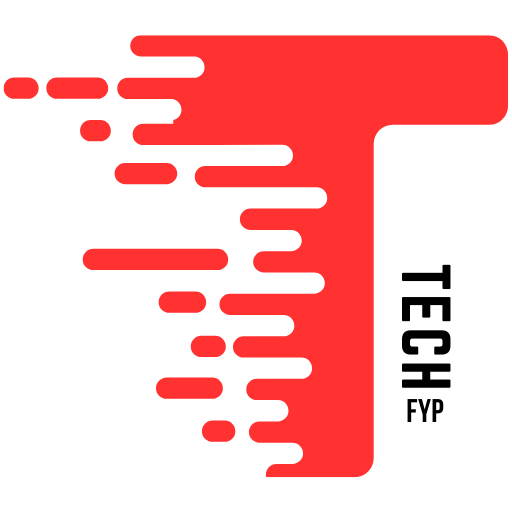- The aviation industry is adopting digitalization with global technological expenditure that is expected to reach $ 3.9 billion by 2027.
- It is anticipated that the number of passengers increases to 5.2 billion by 2025, creating a significant demand for innovative solutions.
- A critical shortage of aviation professionals is projected, which requires 674,000 new pilots and 716,000 maintenance technicians in the next two decades.
- The new roles in aviation will include cybersecurity experts, data scientists and AI developers as technology becomes increasingly vital.
- Advanced training tools such as flight simulators are becoming essential for pilot training.
- The main aviation and FAA companies actively seek talent to support this technological transition.
The heavens are transforming as the aviation industry rises to a new era of digitalization! With the projected global technological spending to shoot an amazing $ 3.9 billion for 2027The airlines are running to replace obsolete systems and adopt avant -garde solutions. This change is not just about efficiency, it is a flight to security and innovation.
Every day, innovative technologies are reforming the management and training of air traffic, preparing for an unprecedented increase in the number of passengers, expected to achieve 5.2 billion for 2025. However, this boom comes with its own challenges, including the amazing shortage of aviation professionals. Boeing projects the need for 674,000 new pilots, 716,000 maintenance techniciansand 980,000 members of the cabin crew For the next two decades!
In the midst of these demands, New exciting roles They are emerging. The aviation landscape is now asking Cybersecurity experts, Data scientistsand IA developers—Profesionals that combine technological experience with knowledge of aviation. Advanced training tools, such as flight simulators, improve pilots’ skills, ensuring that the human element remains integral despite the growing automation.
The main players like RTX Corp and Boeing are actively looking for talent to feed this digital change. The Federal Aviation Administration (FAA) is not left behind, creating more positions of IT and cybersecurity.
The conclusion? The future of aviation is undoubtedly digital. Those ready to take advantage of the power of technology in this evolutionary field will not only keep the safe skies, but will lead to a new and exciting flight chapter. Are you prepared to make the leap?
Discover the future of aviation: innovations, trends and key ideas!
The digital transformation of aviation: what you need to know
The aviation industry is experiencing a revolutionary transformation fueled by digitalization. With technological investments they are expected to reach $ 3.9 billion for 2027Airlines are eager to modernize their operations. This digital change goes beyond mere efficiency: it is intrinsically linked to improvement security and promoting innovation within the sector.
The projected growth of air trips is amazing, with the overall number of passengers who shoot for 5.2 billion for 2025. This increase has significant challenges, especially a critical shortage of qualified aviation professionals. According to Boeing, industry demands in the next 20 years include 674,000 new pilots, 716,000 maintenance techniciansand 980,000 members of the cabin crew.
Innovations and key trends
1. Appearance of new roles: The evolving landscape requires a wide range of new roles, such as Cybersecurity experts, Data scientistsand IA developers. These professionals have a set of unique skills that merges the technical experience with a deep understanding of aviation.
2. Ai and simulation technologies: Advanced training tools, especially flight simulators with AI, are becoming essential to improve pilot training and maintain high safety standards. This technology ensures that, although aviation becomes more automated, the human element remains essential.
3. Regulatory adaptations: Organizations such as the Federal Aviation Administration (FAA) are proactively creating new positions centered on IT and cybersecurity to address the complexities of the greatest digitalization in aviation.
Frequent questions
1. How will digitalization affect aviation security?
Digitization improves aviation security through real -time data analysis, predictive maintenance and improved training tools. When integrating advanced technologies, airlines can address possible problems before they intensify, leading to a safer flight environment.
2. What skills will they have a great demand in the future aviation market?
The future aviation labor market will prioritize cybersecurity skills, data analysis and artificial intelligence. Professionals with these skills will be crucial to navigate digital transformation and guarantee both operational efficiency and safety.
3. How does the aviation industry plan to face the shortage of the workforce?
The aviation industry is investing in training programs and associations with educational institutions to cultivate new talents. This includes promoting STEM education (science, technology, engineering and mathematics) to inspire the next generation of aviation professionals.
Conclusion: a new brave flight
The future of aviation is directed unequivocally towards a digital horizon. As the sector continues to evolve, the integration of technology will not only improve operational efficiency, but also guarantee higher safety standards. Those who are ready to adapt and innovate will emerge as leaders in this new and exciting chapter of air trips.
For more information and updates, visit the following links:
Learn more about Boeing
Explore FAA initiatives
Discover RTX Corp advances



